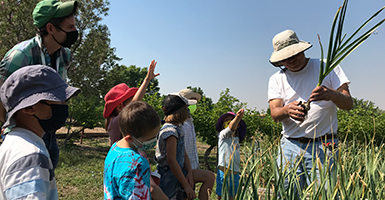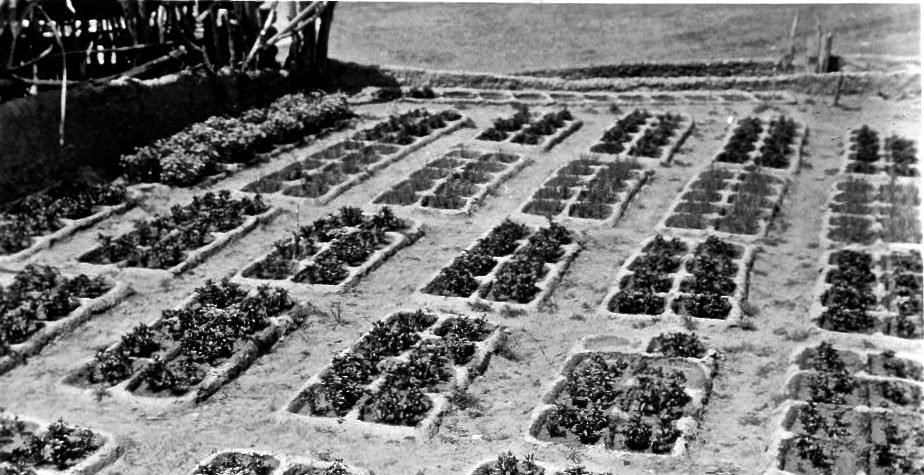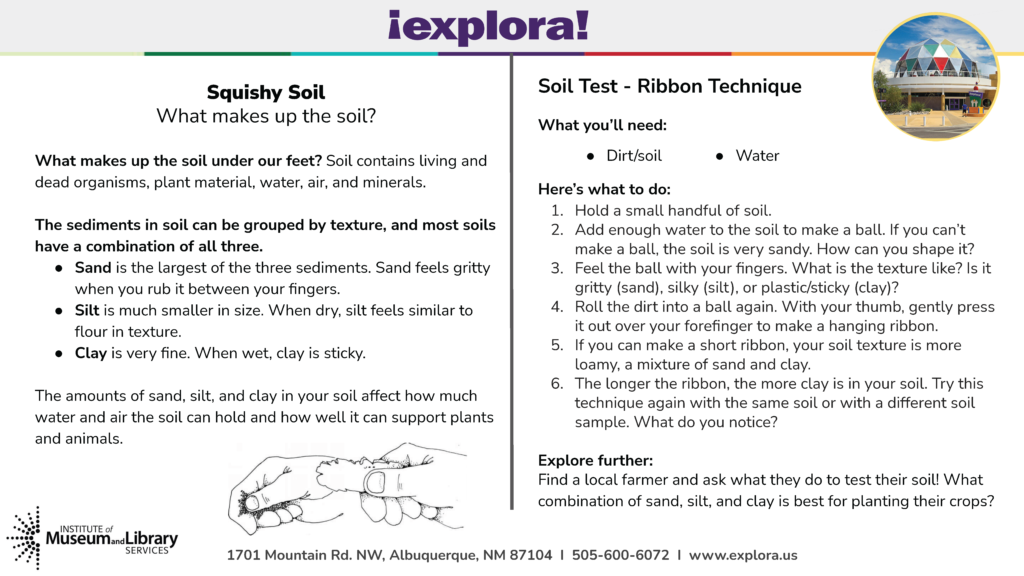March 17, 2022 / News & Blog

| This article is part of the “Children’s Museums and Climate Change” issue of Hand to Hand. Click here to read other articles in the issue. |
By Lauren Butcher and Rachel Zollinger, Explora Science Center and Children’s Museum
How can we equip our children for climate change? One way is to look to long-established knowledge of climate and place. Since time immemorial, Indigenous peoples have made their homes in New Mexico’s arid lands, experiencing climate events such as extreme drought and devastating wildfires. At Explora Science Center and Children’s Museum, we are developing at-home STEM activity cards that highlight local Indigenous peoples Traditional Eco-logical Knowledge (TEK) around water conservation, forest management, and living within arid conditions. The cards showcase how traditional practices have effectively utilized science and engineering principles—and continue to do so.
One exemplar STEM activity card focuses on waffle bed gardening. This water conservation technique arose independently in cultures living in arid lands around the world, including in the Southwest, where Diné (Navajo), A:shiwi (Zuni), Zia, and Laguna peoples use waffle bed gardening to grow corn, beans, squash, and other crops. The card provides instructions on how to construct a simple waffle bed by digging out a small square of earth and building walls around the edges. The bottom of the square is filled with gravel, sand, or mulch to prevent evaporation. Water is poured directly inside the square. The activity fosters science and engineering practices by asking children to meet challenges and test different variables: what would happen to the damp soil in the square if the walls were taller or the square was deeper? How might more gravel, sand, or mulch affect the evaporation? What soil composition makes the strongest wall?

One exemplar STEM activity card focuses on waffle bed gardening (above). This water conservation technique arose independently in cultures living in arid lands around the world, including in the Southwest, where Diné (Navajo), A:shiwi (Zuni), Zia, and Laguna peoples use waffle bed gardening to grow corn, beans, squash, and other crops.
STEM activity cards are a way to share education resources on a range of topics for at-home learning, a pathway Explora has utilized for reaching individuals and communities outside the museum. Climate-focused cards invite young children to play with ever-fascinating water, soil, and rocks in the new context of positive climate change solutions. They provide an arena for family conversations by promoting an interactive play experience. The cards encourage children and their families to expand their conversations to include local knowledge holders such as traditional gardeners, farmers, and elders. Climate change is a community concern, and the cards prompt families to look to community assets to address it. The Southwest is projected to experience more intense drought and storms as a result of climate change. Proven agricultural and land management techniques developed in response to extreme natural weather patterns are especially effective for adapting to the region’s future.

STEM activity cards are a way to share education resources on a range of topics for at-home learning, a pathway Explora has utilized for reaching individuals and communities outside the museum.
Explora Science Center and Children’s Museum will continue to work with community partners across New Mexico to develop STEM Activity Cards that highlight both conventional and indigenous science-based climate mitigation strategies so the next generation will continue to adapt and thrive. We would like to acknowledge our funding from IMLS Planting Seeds of STEM, the NISE Network Earth & Space Project-Based Professional Learning Community, and the IMLS Howtosmile At-Home Activities project for the development, printing, and translation of the cards.
Lauren Butcher is school and community programs manager and Rachel Zollinger is an educator at Explora Science Center and Children’s Museum in Albuquerque, New Mexico.